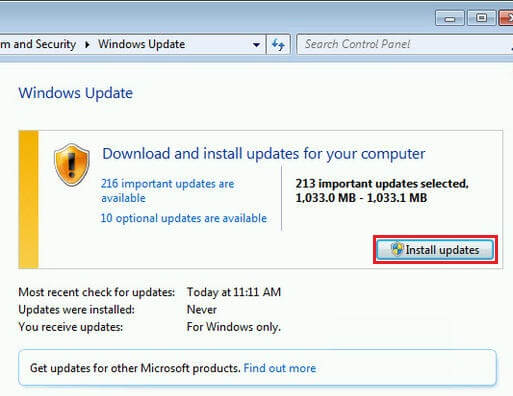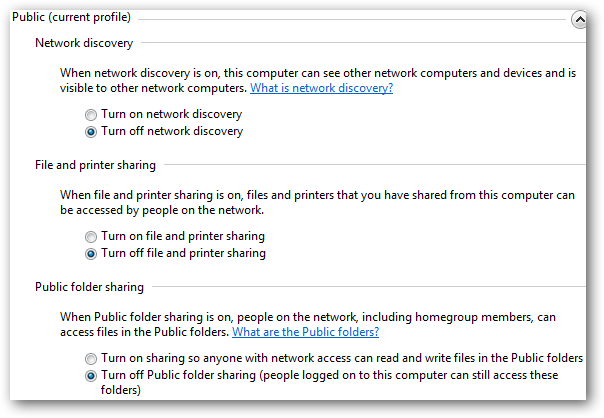The public Wi-Fi networks usually available in hotels and coffee shops are definitely not safe. It does not matter whether the public Wi-Fi network have a password or not. If you are sharing it with a number of users which means that your data is at risk.
For sure, no one can resist an open network as people are so addicted to checking their social networks frequently, reading the news or checking their bank balance. This addiction to the internet has led the people to forget about the privacy and use the public Wi-Fi network without any hesitation.
Methods to Improve Wi-Fi Security
The hackers are spread all over the internet looking for the data that they can exploit. Usually, these hackers use public Wi-Fi sniffers to get the access of password, email, browsing history and even your credit card details. You can apply these steps to stay secure on public Wi-Fi.
Turn off network when connected to Public Wi-Fi
When your device is connected to home or office Wi-Fi then it is fine to share the private information but when the device is linked an unsecured Wi-Fi network then you need to turn it off.
For example, a hacker gets access to a printer and then connect your Wi-Fi device. This is termed as reverse hack while the hacker can also get easy access to the files present in the cloud.
Steps for turning off the network sharing
- Go to your Windows Control Panel.
- Access the Network and Sharing Center window.
- Click Change Advanced Sharing Settings.
- Choose the Public profile.

- Turn off, Network Discovery, File Sharing, and Public Folder Sharing; in case they aren’t already OFF.
These steps turn off your public network sharing. However, these steps might be dissimilar for different windows operating system.
Enable your firewall
To ensure Wi-Fi security, keep the firewall enabled. You can use security product with an even better firewall if you have one.
As we usually turn off the windows firewall due to annoying pop-ups and notification and then totally forget about it, then it is the time to enable it again by:
- Going control panel.
- Driving to system and security.
- Choosing windows firewall.
HTTPS Everywhere
It is highly recommended not to perform an important operation or make a financial transaction through a public Wi-Fi network. If it is necessary to use then make sure to use a secure website or use specialized secure browsers.
To know that whether you are using a secure website, have a glance at the left side of the web address, if it has a ‘lock’ icon then it means that you are on a verified and encrypted location.
You can also check if the web address has ‘HTTPS’, the ‘S’ here indicates ‘secure socket layer’ that means your communication will be encrypted.
You can use HTTPS Everywhere which is accessible on Firefox, chrome, and opera. This action can also make your communications encrypted when you are interacting with major websites.
Virtual Private Network
Using a public Wi-Fi connection can be extremely dangerous as cyber attackers are always in the search of private data.
Make your public Wi-Fi surfing much safer by setting up a Virtual Private Network (VPN). It protects the data by passing through an encryption tunnels which guards the information against identity theft, ransom attacks, cyber breaches, and phishing scams.
Keep your system update
Keeping your Windows operating system up-to-date is important for the cybersecurity.
Follow three simple steps to enhance privacy.
- Drive to your Windows Control Panel window.
- Select Windows Update and click Change settings.
- Ensure Install updates automatically are selected.
Third party programs such as Flash and Chrome are at the security risk of getting tricked by software into downloading nasty software. Usually, the third parties want you to install updates manually instead of automatically.

Install Antivirus
If you are only relying on the public Wi-Fi network then having a reliable antivirus can make a huge difference.
For Wi-Fi security, it is important that you have an antivirus that has these three things for sure: virus scanners, heuristic analysis capabilities (capability of an antivirus to detect the malware) and how often is it updated with the newest malware definitions and other software patches.
At the end of the day, it is you and your skills of handling the internet. To stay safe we suggest you to:
- Not to click on suspicious links or pop-up messages.
- Not to answer back to bizarre email and questions of a web browser.
- While downloading the software and other applications, be careful.
Security for online transactions
Mentioning it once again because it’s something that needs to be explained with great importance.
You must find such a perfect Wi-Fi security while using a public Wi-Fi network for a financial transaction that is able to scan the incoming and outgoing internet traffic before any nasty software infects you and make it easier for the cyber criminals to hack.
Safe browsing
The main gate for the internet traffic is the browser which is the first target of the malicious files. Thus, having a safe browser can protect you from the risk of attacks when online.
Steps you can pursue to make sure your browser survives:
- Make sure you have the most recent browser version and security patches.
- Access and alter your browser’s security settings.
- Exercise private browsing sessions to lessen the data that a cyber criminal can assemble from you.
Two-Factor Authentication
Using two-factor authentication requires both a password and a code that alters on daily basis for each website. This authentication makes it really hard for the hackers to look into your accounts because if luckily they guess your password, they won’t be able to get the code which will leave them a handicap. Although not all websites support it still many popular sites have introduced it as an extra level of security.
Select Wi-Fi network (manually)
Make sure that your smartphone or tablet does not automatically connect to any open network instead it is set to manually select a Wi-Fi network. Turn off sharing and Wi-Fi capabilities when it is not in use as this will help in cutting down any chances available to cyber criminals for exploitation.
Also, you should set your tablet or smartphone to forget the networks that you no longer use or need, as not doing this will automatically reconnect you when back in range.
Note: Never stay signed in permanently to your private accounts when you use an open network as this may leave you exposed. Try logging out from each website when you are finished.
Turn off Wi-Fi
In order to protect yourself from the cyber criminals and for additional security, turn off the Wi-Fi when you are not using it. This is easy on both Windows and OS X and protects you from the cyber criminals because the longer you are seen connected, the more you are being noticed and have chances of being snooped around.
Conclusion
Hope that you have found some solutions to secure your data while using a public Wi-Fi. It is surely difficult to stay away from being online and using a free public Wi-Fi but security comes first. So try not to use a public Wi-Fi, and if you do then must try out the above security measures.

